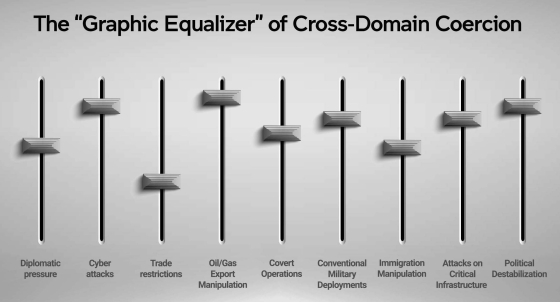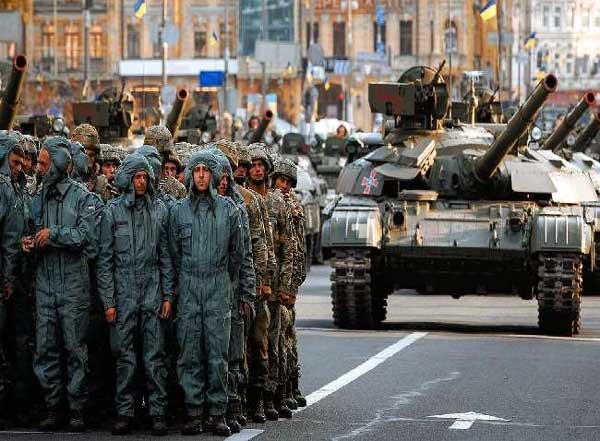Chamberlain: “Why have you massed so many troops at the border?”.
Hitler: “In case of a provocation”.
C: “But what if there is no provocation”.
H: “How can there not be a provocation with so many troops”.
This exchange between Hitler and Chamberlain was featured within the pages of history just before Germany invaded Czechoslovakia in 1938. Eighty years later, the Ukraine-Russia impasse is kind of similar. The situation in Ukraine leads to two questions – first; Why Putin has not invaded Ukraine as yet? Second; is it really about the tiny strip of land in Donbas?
I believe the roots of this conflict lie with the rise of Putin in the early 2000’s. It is no secret that Russia tried to join NATO after the collapse of the Soviet Union but was denied and constantly underpinned by the West. For the last 20 years, Russians have increased their sphere of influence in the former Soviet Union states like Belarus, Kazakhstan and Eastern Europe while NATO was busy fighting wars in the Middle East and Afghanistan. As Deputy Foreign Minister Sergei Ryabkov put it- “For us, it’s absolutely mandatory to ensure Ukraine never, ever becomes a member of NATO”.
Unlike the Anti-Western Rhetoric, Russia today wants to retain its sphere of influence, that’s all! The old glory of Russia is behind them. Putin knows NATO is slowly enticing Russia. NATO has continued its expansion 1000 kms eastwards by taking in several member countries of the erstwhile Warsaw Pact on board. Poland, Lithuania, Estonia and Latvia have all joined NATO and have troops and missiles on their soil. Georgia and Ukraine are also slipping away, Moscow is asserting that it is taking on the role of the former USSR. Any chance of the Warsaw Pact rising again is gone forever.
Winners and Losers
Turkey – AmberinZaman, reporting from Vinnytsia, Ukraine, writes, “Turkey, not America, is commonly cited as the country that boosts Ukraine’s flagging spirits the most and whose actions show that it isn’t afraid of Russia”. Whether drone sales or unstinting diplomatic support for Ukraine over Crimea. In addition to this, Ankara seems to believe the Black Sea region gives it leverage to use the 1936 Montreux Convention as a bargaining chip in the transactional relationship it seeks with the Joe Biden administration, especially with the economic woes turkey has. Thus Turkish ambivalence has not gone down too well with the Russians.
Qatar – Europe’s fraught relationship with Russian gas is widely known; about 38% of Europe is dependent on Russia for its energy needs. In recent years the debate has centred on Nord Stream 2, which would strengthen German energy security but would increase the European dependence on Russia. Germany’s significant dependence on Russian energy and its historic unwillingness to risk energy disruptions for the sake of its neighbours pushes Qatar in the limelight. The question is less of Germany’s intransigence but of limited options that the EU has, and thus the US is relying on Qataris to fill up the void if the EU turns off the tap on Gazprom or vice-versa. Despite Washington’s best effort to shift the German calculus, Germans are unrelenting as the problem remains – LNG is more expensive than Russian gas, and finding substantial reserves from any country during a crisis is extremely challenging. Any punitive action exempting energy exports is far less coercing or deterring Russia. Russians know that they can use energy as a force multiplier, and thus it seems sure that the Qataris are in for a treat – Either Russia makes Oil prices skyrocket or Qatar oil powers Europe in future.
China – As a former German Navy Chief Schonbach put it rightly, China is the biggest threat, and NATO has pushed Russia deep into the Chinese camp for the last decade that set the stage for a worldwide schism on the lines of Russia-China and NATO. China now feels emboldened to go after Taiwan seeing the mixed response from the US and its Western allies. It also gives China space to react to the US’s growing clout in the Indo-Pacific and the newly created AUKUS.
One cannot see conflict in Eastern Europe in isolation even if Ukraine turns out to be a bluff. Russia has projected its capability to amass thousands of troops within no time and posture for an unthinkable war, thus forcing Europe to open dialogue and tends to use dialogue as a method of normalizing otherwise unacceptable behaviour – making facts on the ground and then uses dialogue to normalize it. Russia and China today boast the capability to unilaterally change the status quo in the Arctic, Ukraine, Syria, South China Sea, and Ladakh and then legalize it by making buffer zone and calling it a fait accompli for domestic audiences, Thus, questioning the primacy of the UN and international laws.The current situation is also an insinuation of Military coercion and hybrid warfare; It also reflects the extensive training that the Russian military has undergone in Syria – “almost all Russian ground troop commanders now have combat experience, as do 92 percent of military pilots.”
Kremlin looks to expand its Naval operations on all fronts – the Mediterranean Sea is next; Russian Navy is sending additional missile submarines, missile cruisers, and missile frigates to the Mediterranean and Black Sea areas from its Pacific fleet as part of Joint drills in the region. Ukraine is expecting unprecedented military drills simultaneously both to its north and to its south. These drills will include amphibious assault, anti-submarine warfare and air defence drills.
Key lessons for India
- Time and again, it is proved that Economic interdependence and cross-domain coercion are the key factors in negotiations between two countries, thus forming a crucial component of the National Security Apparatus of any country. As India rises in world Geopolitics, it must use these weapons in the Indian Ocean if the need arises and take on the role of the net security provider.
- Use of coercive military action as an extended arm of diplomacy in times of crisis. The Indian political leadership must focus on military preparedness like the Russians as a credible deterrence in achieving political aims; OP PARAKRAM, OP FALCON AND OP CACTUS are worthy examples of sending a message across. There always lies a scope for military action as a bargaining chip in negotiations.

Graph Courtesy: https://www.unsw.adfa.edu.au/newsroom/news/opinion-russias-war-ukraine-complex-and-probably-already-underway
Conclusion
What is happening in Ukraine cannot be seen in isolation by New Delhi. The situation in Eastern Europe only buttresses the Chinese position sensing the inability of the US to take decisive action as well as form a diplomatic consensus against Russia. This conflict is also a litmus test for Turkish drones, which Pakistan has in its armour for use against India. ATGMs and MANPADS will be decisive factors in this conflict. It will be interesting to see how Russian tank commanders and pilots deal with them.
References





